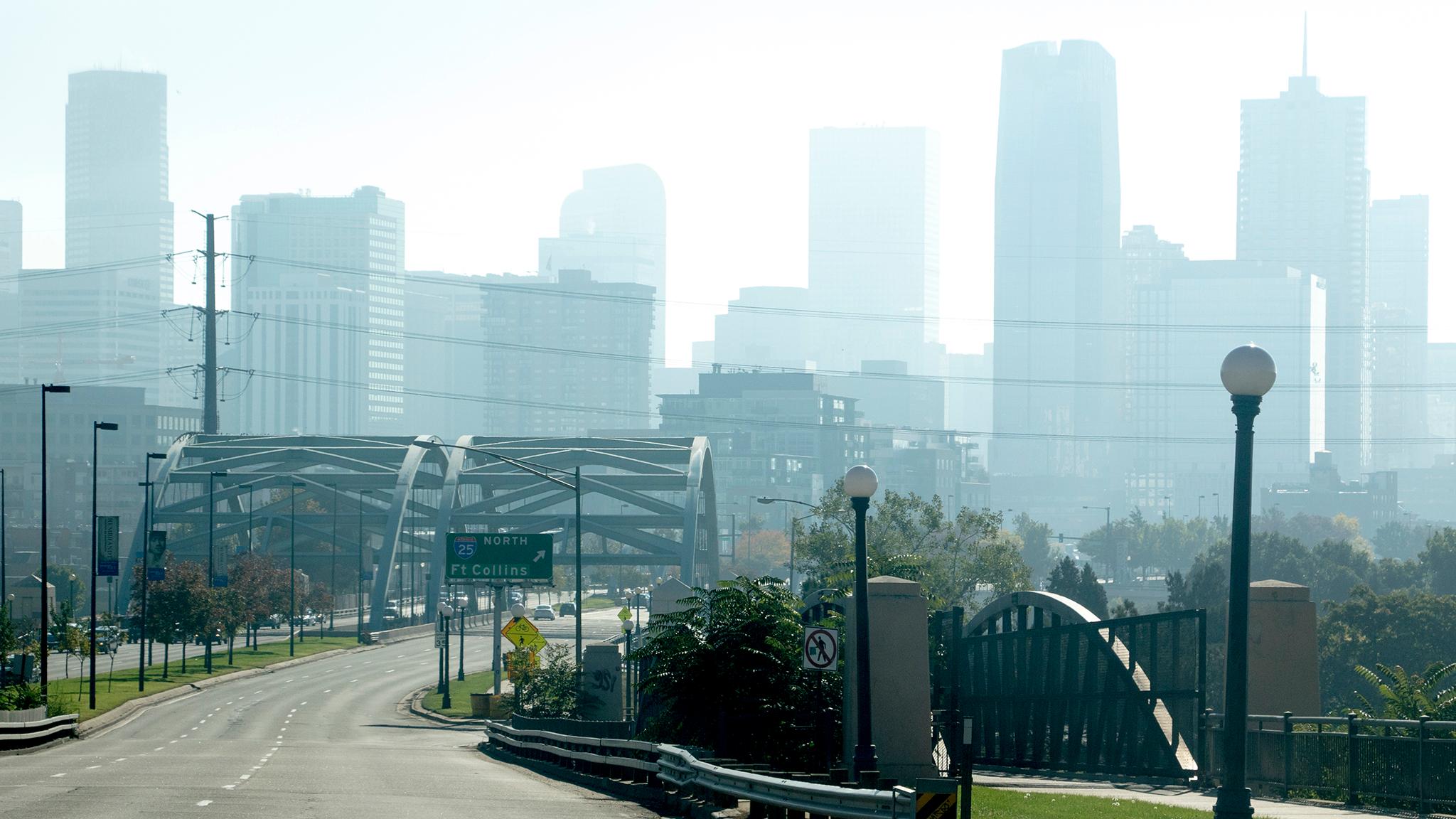The Environmental Protection Agency officially downgraded the air quality rank of Denver and eight other Front Range counties Monday.
The region has been downgraded from a "moderate" violator of the Clean Air Act to a "serious" one. The downgrade triggers more stringent regulations on the state's largest polluters.
"EPA is taking this action based on monitoring data showing that ozone remains a challenge in Denver and northern Front Range communities," Gregory Sopkin, an EPA administrator for the region said in a statement, citing data from 2015 to 2017.
The Denver Area has exceed the National Ambient Air Quality Standards for ozone for more than a decade, violating both the 2008 standard of 75 parts per billion and the new 2015 standard of 70 parts per billion.
Ground-level ozone forms when sunlight reacts with air pollutants creating a smog or haze that can be harmful when breathed in. Typically the pollutants that cause this reaction are either volatile organic compounds, which come mostly from oil and gas operations, or nitrogen oxide, which come mostly from vehicles.
Under the new designation, any entity that releases more than 50 tons of ozone precursors will be required to obtain a Title V permit, which carries additional fees, calls for more stringent reporting and may require offsets. Before the downgrade, the threshold for the Title V permit was 100 tons of ozone precursor per year.
The new state regulations will primarily affect oil and gas operations along with a handful of other industrial facilities. While these regulations will help reduce the release of ozone precursors along the Front Range as a whole, most of Denver's ozone starts with tailpipe emissions. Because cars are mobile sources of pollution, they can't be tackled with a sweeping regulation. Vehicle emissions will only decrease if individuals change their behavior.
"The reality is that we could solve our air quality problem if we could really drive purchases of electric vehicles," said Gregg Thomas, who heads the Environmental Quality Division for the city and county and sits on the Regional Air Quality Board.
The state cannot sanction drivers for their emissions, so Colorado has created incentives for people to buy electric cars and passed stricter regulations on automakers. The new regulations will require passenger cars sold in Colorado to reach 54.6 miles per gallon by 2026. Automakers will also be required to offer a certain amount of electric vehicles for sale in the state.
According to Thomas, the Denver area is projected to reach compliance with the 2008 ozone standards by the deadline in 2021 with the new regulations on major sources of pollution. To meet the 2015 standards, the state will need other tools, like the planned vehicle regulations. But in September the Trump Administration revoked the authority of Colorado and 12 other states to set their own fuel efficiency standards. The president said that different state standards would make cars more expensive and less safe.
Colorado joined a lawsuit to fight the president's decision, but the stricter emissions rules are stalled as they wind their way through a lengthy legal process. According to Thomas, the regulatory rollback makes it more difficult for places like Denver that struggle to meet federal air quality standards to come into compliance.
"If we stop making progress [on vehicle emissions] after 2020 then we will have lost a really important tool in our tool box for addressing both greenhouse gasses and air quality," Thomas said. "If those rollbacks are successful then the state doesn't really have much of a choice other than to get creative and impose even further regulations on other industries."














